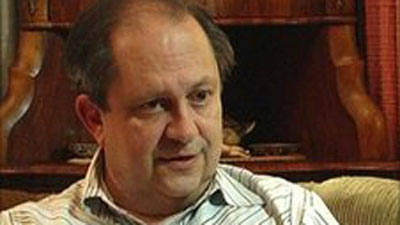Defence expert Helmoed Heimat has questioned whether the ANC is trying to tell the public a “fairy tale” through the stance it is taking on global super-powers such as China and the US.
Heimat was responding to statements by senior African National Congress (ANC) officials Ayanda Dlodo and Obet Bapane on Monday in the run-up to the ruling party’s National General Council (NGC) in October.
In both their statements at a press conference, and the ANC policy discussion documents, the ANC painted a bleak picture of US foreign policy, with China being seen as a rising super-power that would be its foreign ally of choice going forward.
In his highly critical response, Heimat writes: “I suspect the problem is that we are dealing with people who still dreamily wish the Soviet Union had won the cold war. Then there would be no noisy press to deal with or ungrateful voters who actually want electricity, water, sewage systems and the like.”
What the ANC says
In its policy documents, the ruling party speaks of what is currently a “unipolar” world with the US in charge of global economic developments. It is highly critical of the US and its perceived strong-arm tactics, and says: “History is testimony that the US (is) effectively using its aggressive foreign policy to advance its national interest. In most instances, it has been supporting undemocratic changes of government as an instrument to serve its global agenda.”
Ndlodlo said that there have been two major arms proliferation surges over the past 50 years.
The first, she says, was to arm African – and ANC – freedom fighters with weapons, coming from the Soviet bloc and Asia, but which she asserts was used to bring about democracy. The second, recent wave can be seen in countries like Afghanistan, Syria, and Libia.
“The origin of these arms is the West,” says Ndlodlo, “and it does not have liberation as a result, but an escalation of terrorism and the firm entrenchment of the ISIS body.”
The publicly-available ANC policy discussion documents note a shifting balance of forces globally with the emergence of the BRICS (Brazil, Russia, India, China, South Africa) alliance, amongst others, something Bopela describes as a positive move towards a multi-polar balance of power.
The discussion documents say that while the abuses of the West of its power paints a gloomy picture, “the rise of emerging economies, led by China in the world economy, has heralded a new dawn of hope for further possibilities of a new world order.”
Critical reaction
Heimoet is brutal in his critique of the ruling party’s foreign policy stance.
He writes that Ndlodlo and Bapane, “either have no idea how major powers think and work, or would like us to believe in fairy tales for some other reason.”
According to Heimat, “There is very little real difference in how the US and China will work to protect their interests, other than that Obama seems to infatuated with his own opinion of himself as a genius to fully appreciate what is happening around him, so the US is in some respects more passive than it will be in the future…I think the two speakers need to reflect on Lord Palmerston’s argument that “nations have no permanent friends or allies, they only have permanent interests”. That is the reality of the world, and if South Africa wants to prosper, we need to understand that and approach all of the major powers on the basis of that understanding – sometimes their interests will coincide with ours, sometimes they will not. Neither case makes them friends or enemies except ‘for the working day’.”
He states that only Europe has any real interest in a stable and prosperous Africa. “The last thing China wants is a stable and prosperous Africa that can no longer be led down the garden path,” he says, explaining that the Asian country, in his view, needs cheap raw materials, and is looking out for its own national interest in the process. He also notes that China and Russia are “clear leaders compared to the US” when it comes to undemocratic governments.
Reacting to the allegation that the US and NATO were responsible for arming terrorists, he states that mainly Russian and and Chinese weapons were being used, including in countries like Afghanistan, Syria, and Libya – specifically: “AK-47s, Dragunov sniper rifles, RPG-7s and later model RPGs, 14.5 mm heavy machineguns, 23 mm cannon.
“Most of those weapons are almost certainly left over from previous guerrilla wars and some others are being supplied by 2nd tier manufacturers in the former Soviet empire, as well as ammunition for them.”
He also pours cold water on notions that the Soviet bloc and China supported the struggle for ideological reasons.
“It was not because they felt warm and fuzzy about them [the ANC] or about Africans in general (ask rank and file MK members who spent time in Russia about how the average Russian felt about and behaved towards them).
“Russia and China provided that support as part of their overall strategy vis a vis the western powers, just as the US supported the Mujahidin in Afghanistan as an irritant for Moscow, not because they were in love with them.
Heimat concludes his critique of the ANC foreign policy stance by asking if the ANC are “fantasists who to this day have not been able to grasp that if a country – East Germany was the prime example – has to build a wall and fences to keep its citizens from leaving, just maybe there is something wrong with their policies.
“I do wonder what they will do when their favourite poster child, Cuba, turns into a capitalist paradise over the next decade? Fortunately there are senior people in the party who no longer believe in the old mythologies; it is just a pity that they are not more vocal.”
– By Christelle du Toit


